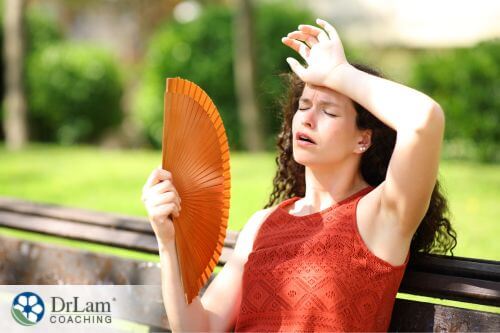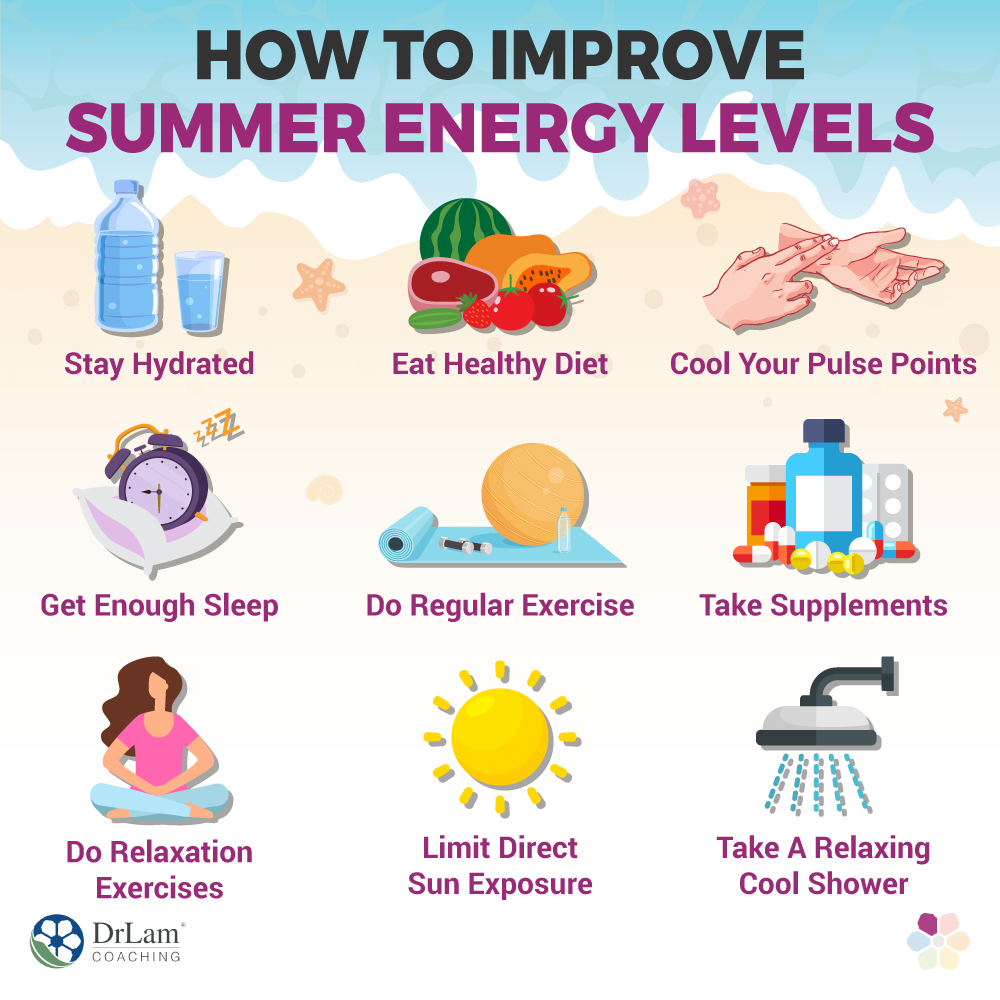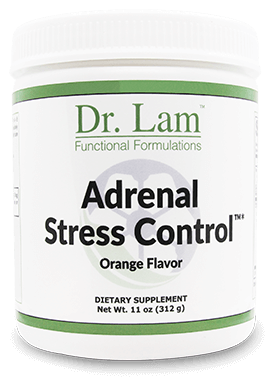 Summer brings up images of long walks, fun in the sun, time at the beach, burgeoning gardens, sitting on the porch, and sipping large glasses of ice-cold sweet tea. There's a lot we want to do in summer. But one thing that keeps many of us back from having the summer we want is summer energy depletion.
Summer brings up images of long walks, fun in the sun, time at the beach, burgeoning gardens, sitting on the porch, and sipping large glasses of ice-cold sweet tea. There's a lot we want to do in summer. But one thing that keeps many of us back from having the summer we want is summer energy depletion.
During the warm summer months, many seem to lack the energy they have during spring or fall. But it could be a natural response to warm temperatures. People who live in warm, tropical climates experience elevated temperatures throughout the year. And their way of life tends to reflect this. You may often find them staying out of the sun during the hottest hours of the day and sitting in the shade and simply relaxing. A good example of this is the typical Spanish siesta. Here we find people sleeping for a few hours during the day. Yet when the day cools down, you would most probably see them working away or staying up late into the night.
So, why do your summer energy levels tend to drop, and what is more, what can we do about it? Or should we do like the Spanish people and close up shop and take a nap during the warmest part of the day?
Your metabolism controls your body temperature. Most heat production takes place in the brain, muscles, liver, and heart. High temperatures can hamper your body’s ability to regulate temperature. This could not only lead to heat exhaustion or sun stroke but affect cognitive function1 as well. This could result in confusion or even memory loss.
When your body heats up, the blood vessels present in or under the skin widen. We refer to this widening as vasodilation. This allows more blood to reach the surface of your body and cool down. This is the same as what happens when you have a fever. You may develop a flush at this time.
Some of your body’s core fluid may also move to the skin and become visible as sweat. The evaporation of your sweat has a cooling action on your body.
However, both the blood and fluid moving to your skin results in less of these being present in your brain and other body areas. But your body and brain need these fluids to function properly. When they experience reduced amounts of these fluids, you feel less energetic. In other words, you experience a summer energy drop during the warm part of the day.
You may have a similar experience when your body heats up while doing strenuous exercise. Also, elevated temperatures may put your body in a state of stress. In other words, an increase in temperature may function as a stressor.
 The brain exhibits remarkably high levels of metabolic activity. All energy used by your body in its metabolic processes becomes heat. The temperature of your brain usually fluctuates between two and four degrees Celsius. This discrepancy is well within normal parameters.
The brain exhibits remarkably high levels of metabolic activity. All energy used by your body in its metabolic processes becomes heat. The temperature of your brain usually fluctuates between two and four degrees Celsius. This discrepancy is well within normal parameters.
Extreme temperature fluctuations, as we see when our bodies and brains become exposed to elevated temperatures, could affect the brain’s metabolic activity and neural function. It could even lead to reduced cognitive performance, less parasympathetic activity, and lower productivity, according to studies.
So, while the brain itself generates heat, excessive heat can affect brain function. Low summer energy levels and brain fog may result from this. And, while not debilitating in the short term, exposure to consistently elevated temperatures could adversely affect brain function in the long run.
Your muscles make use of carbohydrates and fatty acids to function properly. The mitochondria in your cells use these and, through the oxidation process, produce adenosine phosphate. The latter, when undergoing hydrolysis, releases energy. This energy helps your muscles contract. But the process also results in the release of heat.2 The heart is also a muscle, and it is situated at the center of the circulatory system.
Elevated temperatures put stress on your body. This results in an increased release of heat-shock protein (HSP). HSP protects not only your skeletal muscles but all your body tissue and cells against certain stressors, like heat.3
However, the release of HSP proteins is energy-intensive, and you may feel tired when it occurs. This means that elevated temperatures could affect your muscle health and your summer energy levels.
In addition, a rise in body temperature makes your heart work harder to get blood to the skin and cool down your body. In someone already suffering from heart problems or other conditions, the results could prove disastrous. This is because this extra work could weaken the heart muscle and increase the risk of heart attack. Furthermore, this could reduce the blood’s ability to provide enough oxygen to the various organs and brain. This could have grave consequences for organ health and brain health as well.
Your liver helps to maintain your internal body heat through metabolic processes. This is especially the case when it breaks down nutrients.
Prolonged exposure to heat, on the other hand, can trigger apoptosis, or the process by which cells in the liver start to die off. This could lead to liver damage which, in turn, can compromise the liver’s ammonia detoxification ability.4 This could not only reduce summer energy levels in the short term but could also, in the long term, lead to serious health issues.
Your thyroid gland is part of the endocrine system. This system of glands secretes hormones into your bloodstream and fulfils many important functions. The thyroid gland produces two thyroid hormones, T3 and T4. These hormones play an important role in your body’s metabolic speed, and thus affect internal temperature regulation. When your thyroid produces too much of these hormones, you could develop several health problems, including heat intolerance.
Exposure to high temperatures may increase your thyroid gland’s metabolic activity. Increased metabolic activity may increase your body’s oxygen consumption. This could lead to feeling tired or lazy. In other words, your summer energy levels may decrease. Also, it would speed up your adenosine triphosphate (ATP) consumption. ATP is your body’s energy source at a cellular level. Lower ATP levels could also induce feelings of fatigue as your body may experience a shortage of energy when you are exposed to consistently warmer temperatures.
 Your adrenal glands produce your body’s stress hormones. Because of this, they play an important role in your body’s NeuroEndoMetabolic (NEM) stress response. The NEM stress response is an automatic response to stress of any kind. Your body considers excessive, long-term exposure to high temperatures, like we often experience during the summer, an external stressor.
Your adrenal glands produce your body’s stress hormones. Because of this, they play an important role in your body’s NeuroEndoMetabolic (NEM) stress response. The NEM stress response is an automatic response to stress of any kind. Your body considers excessive, long-term exposure to high temperatures, like we often experience during the summer, an external stressor.
To combat stress, the Hypothalamic-Pituitary-Adrenal (HPA) axis sends chemical messengers from the brain to various parts of the body that result in the activation of the NEM stress response. Prolonged NEM activation could result in the continuous production of stress hormones, like cortisol, until the adrenals can no longer keep up with the demand. The constant increase of cortisol production as well as the ultimate decline is referred to as adrenal fatigue.
The most common symptoms of adrenal fatigue include the following:
Constant exposure to higher temperatures may result in your summer energy levels thus decreasing even more if you have adrenal issues.

Thankfully, there is much you can do to improve your summer energy levels, especially when they start waning. But the best route to go is prevention.
The risk of dehydration increases during the summer. When dehydration sets in, you can expect a significant drop in summer energy levels. Your body not only loses water when it sweats but electrolytes as well. And the situation could worsen if you exercise (more on exercise to follow), because when you lose too much water and electrolytes, your body’s metabolic processes may suffer.
So drink enough water. You may even need to drink when not feeling particularly thirsty. Also consider drinking smoothies, lemon water, or add a bit of salt to your drinks to keep your electrolytes up. Do not, however, increase your coffee or alcohol intake. While they may quench your thirst, they have a dehydrating effect on your body.
In keeping with the rehydration theme, ensure you eat plenty of fruits and vegetables with a high water content. They will help to stave off the possibility of dehydration and also can contain electrolytes.
But besides staying hydrated, you also need to make sure the foods you eat have many nutrients. The food we eat should provide our body with the energy it needs to improve summer energy levels. At the same time, it is best to avoid ‘heavy’ meals that make you want to take a nap after eating them. Rather, focus on lighter meals that help you stay energized.
Good food choices include the following:
If the heat is really bothering you, cool down your pulse points by placing your wrists under cool, running water. Your blood flows very close to the surface at your pulses and will cool down quickly and spread this coolness throughout your bloodstream. Cooling your neck is effective as well. It is also a good technique to try before going to bed at night during warm weather.
You could also make use of peppermint oil. It has a cool, calming effect. You can rub the oil into sore, tired muscles for some instant relief. You could also add a few drops of the oil to your bath, use it as an insect repellent, or apply a drop to your pulses before bedtime. Not only does the oil cool you down but it also improves your sleep due to its calming effect.
 Many of us who feel prone to summer energy loss during the day tend to see our energy levels perk up at night. This may lead to us burning the midnight oil. While it is okay to take some time to have fun during the warm summer evenings, do remember to get enough sleep. You could also try taking a nap during the day like a Spanish siesta, but be sure it doesn't interfere with your sleep at night.
Many of us who feel prone to summer energy loss during the day tend to see our energy levels perk up at night. This may lead to us burning the midnight oil. While it is okay to take some time to have fun during the warm summer evenings, do remember to get enough sleep. You could also try taking a nap during the day like a Spanish siesta, but be sure it doesn't interfere with your sleep at night.
A good night’s sleep will help improve your summer energy levels and help you to focus better. So, try to get at least eight hours of uninterrupted sleep as often as possible. Going to sleep in a cool, dark room without any electronics at the same time every night may help.
In healthy people, exercise may help to increase your energy levels. Just be sure to stay hydrated, wear sun protection, and take steps to prevent heat exhaustion or even heat stroke. Not only can exercise improve your general health, but it could also improve mental well-being. It could also support a healthy weight, which helps your body manage heat better. Good exercise choices include walking, swimming, yoga, tai chi, and Pilates.
But please note, however, that people with adrenal fatigue and other medical conditions should first talk to their healthcare provider before starting any type of exercise. Exercise could worsen your condition, depending on the stage of adrenal fatigue you are at.
To boost your summer energy levels, consider taking a lukewarm shower instead of a warm one. Or mix up the shower temperature by alternating between warm and cool. This is guaranteed to get the blood flowing, the oxygen circulating, and your brain feeling energized fairly quickly.
You can make use of various relaxation exercises to boost summer energy levels. These relaxation exercises may also help you sleep better at night. These exercises could include meditation, yoga, or breathing exercises that help calm your body and nervous system.
While we get most of our vitamin D from sunshine, too much sun exposure may not only cause cancer but could also lead to heat exhaustion or sunstroke. You only need about 20 minutes of sun exposure to get enough vitamin D.
So opt to sit in a shady spot when outside or go inside during the hottest hours of the day. And if you are in the sun, don't forget to wear a hat, breathable clothes, and reapply your sunscreen regularly.
If you're traveling, take extra precautions to avoid over-exerting yourself or overheating. Plan ahead by bringing plenty to drink, healthy snacks, sunscreen, and cool clothes. Remember to stay hydrated while driving and make regular stops to stretch your legs. This will help prevent fatigue.
Your body loses many essential vitamins and minerals during the warm summer months. This is mainly due to sweating. Replenishing them may help to keep your energy levels from flagging.
However, do note that the best source of vitamins and minerals is usually foods. Always talk to your doctor before taking a new supplement to ensure it is safe for you and avoid any unexpected reactions. Also, it's best to ensure any supplements come from a reputable source.
 This strong antioxidant helps to prevent cell damage due to the presence of free radicals, which can be produced when your body is exposed to sun radiation.
This strong antioxidant helps to prevent cell damage due to the presence of free radicals, which can be produced when your body is exposed to sun radiation.
A good vitamin C supplement to consider is Adrenal Stress Control. This health drink is high in vitamin C but also includes various probiotics, amino acids, and nutrients that enhance immune system health. The supplement also supplies adrenal and cardiovascular support.
Certain B vitamins may help your body and mind deal with the lack of energy often experienced during the heat of summer. Vitamin B6 plays a significant role in proper nerve and brain function. Niacin, or vitamin B3, helps improve circulation while suppressing inflammation.
Adrenal Calm contains both these vitamins as well as magnesium, GABA, and more to help calm the body while improving brain function.
Adaptogens help your body to manage stress and reduce imbalances. These herbs include ashwagandha, ginseng, Rhodiola, and eleuthero. Adrenal Rescue is an example of an adaptogenic supplement. The supplement contains various adaptogens as well as other ingredients that also promote liver health.
While many of us find the summer heat draining, there is much you can do to boost your summer energy levels. Helping your body manage the heat can go a long way toward improving your energy levels. Taking precautions to stay cool and stay hydrated while eating right can be the first steps towards upping your energy. Gentle exercise and getting enough sleep can also help.
Unlock the secret to maintaining vibrant summer energy with a holistic approach that nurtures both body and mind. Embrace the essence of vitality during the warmer months with strategies inspired by Dr. Michael Lam's Nutritional Adrenal Fatigue Recovery Program.
Although initially crafted for adrenal fatigue recovery, this program offers invaluable insights into sustaining high energy levels, perfect for the active summer lifestyle. Gain access to a suite of tools designed to enhance your well-being, including a personalized 30-day meal plan filled with nutrient-rich foods to fuel your summer adventures, a lifestyle toolkit that promotes optimal sleep patterns and effective exercise routines to keep your energy up, and a selection of tailored supplements to support your body's natural rhythms.
Additionally, explore comprehensive resources like the Adrenal Fatigue Syndrome eBook, which provides deeper understanding into managing your energy and avoiding burnout. This program is your guide to thriving during the summer, ensuring you have the energy to enjoy every sun-soaked moment to its fullest.

Adrenal Stress Control contains ingredients that help fight summer fatigue
Yousef, Hani. “Physiology, Thermal Regulation.” StatPearls - NCBI Bookshelf, 1 May 2023, ncbi.nlm.nih.gov/books/NBK499843/#:~:text=Heat%20production%20is%20a%20function%20of%20metabolism.&text=Most%20of%20the%20heat%20produced,and%20skeletal%20muscles%20during%20exercise.
Rossi, Riccardo. “Comfort and Thermoregulatory Requirements in Cold Weather Clothing.” Elsevier eBooks, vol. 3–18, 1 Jan. 2009, https://doi.org/10.1533/9781845697174.1.3.
Locke, Marius, and Carlo Celotti. “The Effect of Heat Stress on Skeletal Muscle Contractile Properties.” Cell Stress & Chaperones, vol. 519–527, no. 4, 1 July 2014, https://doi.org/10.1007/s12192-013-0478-z.
Ma, Bingbing, et al. “Chronic Heat Stress Causes Liver Damage via Endoplasmic Reticulum Stress-induced Apoptosis in Broilers.” Poultry Science, vol. 102063, no. 10, 1 Oct. 2022, https://doi.org/10.1016/j.psj.2022.102063.
Low summer energy levels can affect adrenal health, especially if you suffer from adrenal fatigue. This is due to the loss of fluid and electrolytes and the effect heat has on various organs and systems. Heat can act as a stressor on the body, so it is important to get your body the support it needs.